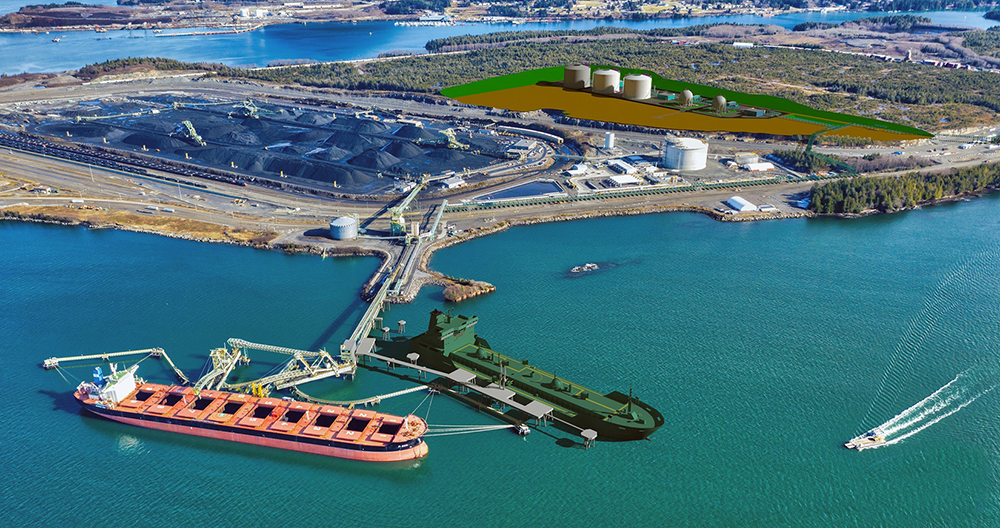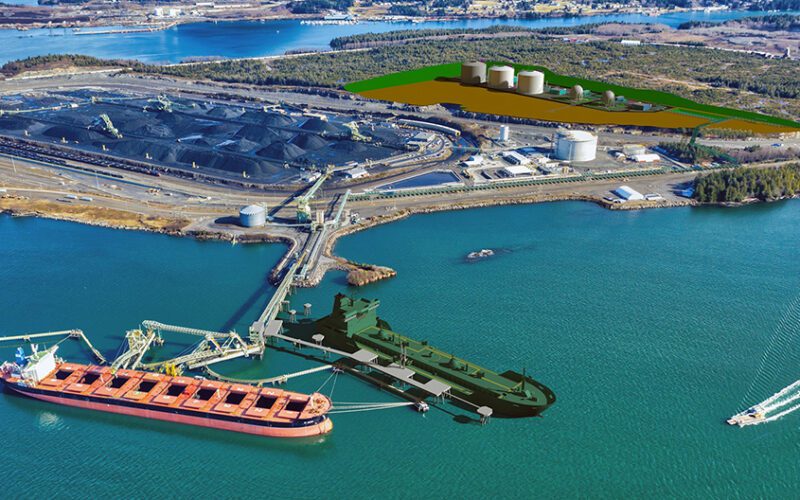
Trigon Pacific Terminals Ltd. accounted for almost half of the Port of Prince Rupert’s 2023 export volumes by handling 10.6 million metric tons of dry and liquid bulk products at its terminal last year, company data show.
The amount represented a 36% increase of PRPA volumes the previous year, according to the data, which was released at the end of January.
As the largest multi-commodity bulk export terminal in Northern British Columbia, Trigon handles Canadian steelmaking and thermal coal, petroleum coke and iron ore pellets. The company also provides rail unloading and berth services for liquid propane gas exports.
“It was a very strong year for our terminal – in the volumes we handled, our safety and environmental performance and our connections with local communities,” Trigon CEO Rob Booker said. “This was in large part due to the close partnership between our valued customers and the Trigon team.”
More than 50% of products exported through Trigon were destined for Japan, followed by China, South Korea, India and parts of Europe.
“Successful terminal operations require ongoing collaboration from the production site, CN rail through railcar unloading to vessel loading, and 2023 was a great example of doing that exceptionally well,” Booker said.
Last year also saw significant progress in the Berth Two Beyond Carbon (B2BC) project with advancement of construction of a new second berth. This berth and the accompanying proposed storage and handling infrastructure aims to make Trigon Canada’s first built-for-purpose low carbon energy export hub – focusing on hydrogen-as-ammonia exports.
B2BC’s marine works is expected to be completed later this year, with the land-based infrastructure planned for completion by 2028.
Late last year, Trigon also announced the proposed Trigon Pacific LPG Project, which would repurpose lands currently used for coal storage. Trigon recently completed its project description, as a key step in the regulatory review process.
Trigon Pacific Terminals Ltd. Is a key link between Western Canadian commodity producers and their Asia-Pacific customers. It is privately owned, with equity positions held by the Lax Kw’alaams and Metlakatla Indian communities.

